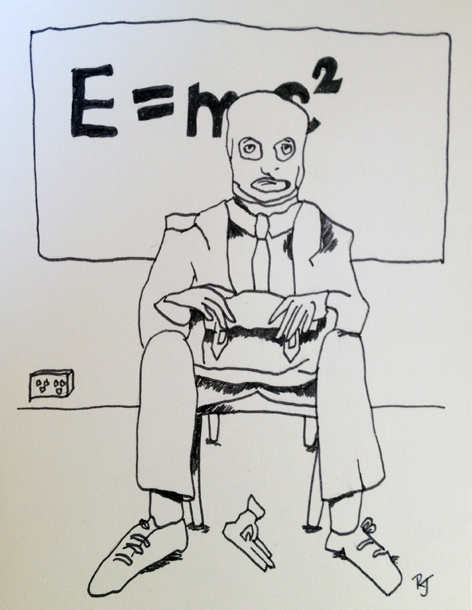-
-
June 14, 2015 in Musings
Playground Nostalgia: A True Story About The Time My Maths Teacher Was Sent To Jail
 Before we found out what he’d been up to, half the girls at Weald fancied Mr. Rogers. Of course we did; it was an all girls grammar school and he was the only male teacher under thirty. We didn’t mind that he was a maths geek, at a time when NHS specs and ankle-swinging chinos weren’t a mark of roguish self-awareness and a killer record collection but a sign that you lived with your mother. Think Christian Slater in ‘He Was a Quiet Man’.
Before we found out what he’d been up to, half the girls at Weald fancied Mr. Rogers. Of course we did; it was an all girls grammar school and he was the only male teacher under thirty. We didn’t mind that he was a maths geek, at a time when NHS specs and ankle-swinging chinos weren’t a mark of roguish self-awareness and a killer record collection but a sign that you lived with your mother. Think Christian Slater in ‘He Was a Quiet Man’.Mr. Rogers was in a band. That fact alone put him right up there with Alex James from Blur (this was well before the Tory-voting, cheese-farming crisis), even though it was the Salvation Army band and he played trombone. What did we know about music anyway? Most of my classmates thought ‘Now 35’ was the greatest album ever released.
-
June 1, 2015 in Reviews
Church Of Modular: New Noise Gig Review – Beauty & Confusion
Daniel Hignell from Rachel James on Vimeo.
On Saturday May 30th, some hackers impose themselves on St. Mary’s Church in Kemptown for a day of code-breaking, patch-sharing, idea swapping and tubthumping. Afterwards, something skin-sploshing and nerve-tingling happens. This is NOT how it happens:
“Hello Vicar, do you want to raise some money towards fixing this leaky old roof?”
“Well yes boys, of course!”
“How about letting us put on an experimental electronic noise gig?”
“Oh yes, we’re very progressive here in Brighton, that sounds wonderful. I love a bit of Mike Oldfield’s Tubular Bells.”
-
May 25, 2015 in Musings
The Pseudoscience Of Musician ‘Superpowers’

For me, musicians have a special kind of draw, something like a shimmering forcefield of energy surrounding their bodies, sending snakelike tendrils through the ethers to wrap themselves about my wrists and pull me closer. I’ve never been a groupie; it’s not about getting my photo taken with some guitar-wielding Lothario at the end of a sweaty gig. The fascination comes from hearing someone’s soul represented in the sounds they make (chill out atheists, you can switch the word soul for ‘personality’ if you like) and admiring the drive that causes them to prioritise making noise over eating, sleeping and accruing material wealth. Yes, I’m talking about dedicated artists of sound, not record-deal hunters. And I propose author and biologist Rupert Sheldrake’s hotly contentious concept of Morphic Resonance to make sense of that ‘je ne sais quoi’ possessed by the ‘true musician’:
-
